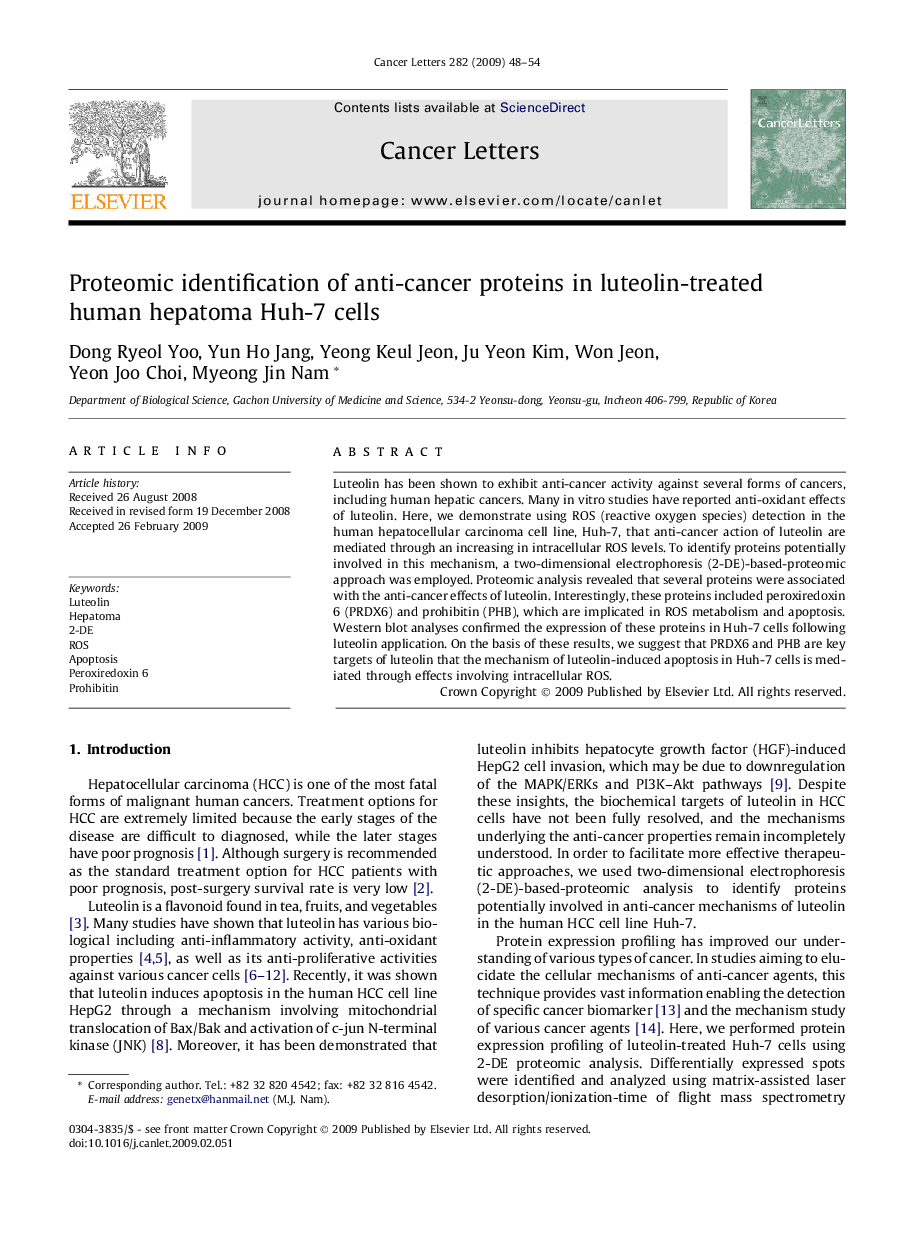| Article ID | Journal | Published Year | Pages | File Type |
|---|---|---|---|---|
| 2116559 | Cancer Letters | 2009 | 7 Pages |
Luteolin has been shown to exhibit anti-cancer activity against several forms of cancers, including human hepatic cancers. Many in vitro studies have reported anti-oxidant effects of luteolin. Here, we demonstrate using ROS (reactive oxygen species) detection in the human hepatocellular carcinoma cell line, Huh-7, that anti-cancer action of luteolin are mediated through an increasing in intracellular ROS levels. To identify proteins potentially involved in this mechanism, a two-dimensional electrophoresis (2-DE)-based-proteomic approach was employed. Proteomic analysis revealed that several proteins were associated with the anti-cancer effects of luteolin. Interestingly, these proteins included peroxiredoxin 6 (PRDX6) and prohibitin (PHB), which are implicated in ROS metabolism and apoptosis. Western blot analyses confirmed the expression of these proteins in Huh-7 cells following luteolin application. On the basis of these results, we suggest that PRDX6 and PHB are key targets of luteolin that the mechanism of luteolin-induced apoptosis in Huh-7 cells is mediated through effects involving intracellular ROS.
